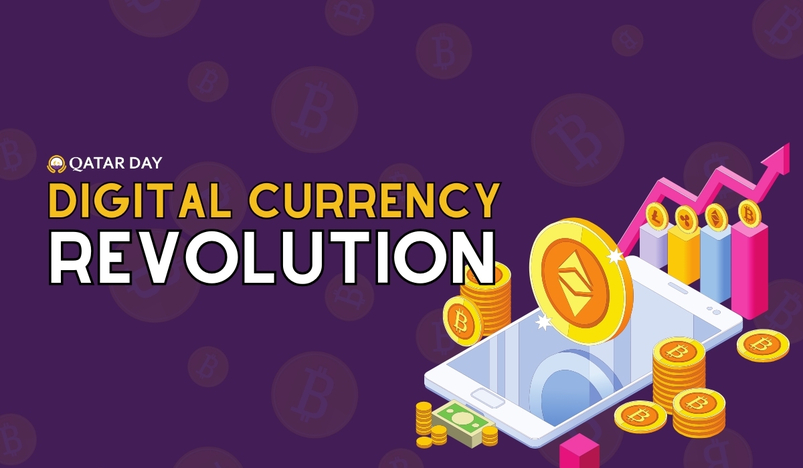
The world is buzzing with talk about digital currency, a groundbreaking development that's transforming how we think about money. Let's get into this digital revolution, exploring what it means, how it works, and the impact it might have on our lives.
Digital currency, or cryptocurrency, is a type of virtual or digital money. Unlike traditional currencies issued by governments, digital currencies exist purely in electronic form. Bitcoin was the pioneer, introduced in 2009 by an unknown person or group using the pseudonym Satoshi Nakamoto. Since then, numerous other digital currencies, commonly known as altcoins, have emerged.
Digital currency relies on a technology called the blockchain. Think of a blockchain as a digital ledger or record-keeping system spread across a network of computers. Each transaction is a "block" linked to the previous one, creating a chain. This decentralized nature ensures transparency and security.
Bitcoin: The first and most well-known digital currency.
Ethereum: Known for its smart contract functionality, enabling self-executing contracts without intermediaries.
Ripple: Aiming to facilitate fast and low-cost international money transfers.
Litecoin: Often considered the "silver to Bitcoin's gold," offering faster transaction confirmation.
Dogecoin: Initially started as a meme, Dogecoin has gained popularity.
Digital currencies operate independently of traditional banking systems. Some argue they could revolutionize banking, making transactions faster, cheaper, and more accessible, especially for the unbanked population.
The digital currency has the potential to include individuals without access to traditional banking services. With a smartphone and internet connection, anyone can participate in the digital economy, sending and receiving funds globally.
Volatility: Digital currencies are notorious for their price volatility, with values soaring and plummeting unpredictably.
Regulatory Uncertainty: Governments worldwide are grappling with how to regulate digital currencies, leading to uncertainty in the market.
Security Risks: While blockchain is secure, digital wallets and exchanges can be vulnerable to hacking and fraud.
Environmental Impact: The energy consumption of some digital currencies, particularly Bitcoin, has raised concerns about their environmental impact.
The digital currency landscape is evolving rapidly, and its future remains uncertain. Some believe digital currencies will become mainstream, while others see them coexisting with traditional currencies. The potential benefits, such as financial inclusion and efficiency, are promising, but challenges must be addressed for widespread adoption.
The digital currency revolution is reshaping our understanding of money and financial transactions. While the road ahead may have twists and turns, one thing is clear – digital currencies are here to stay. Whether they fully replace traditional currencies or find a place alongside them, only time will tell. As we navigate this new financial frontier, staying informed and embracing the changes will be key to understanding and benefiting from the digital currency revolution.
.jpg)
Qatar Secures Place Among the World's Top 10 Wealthiest Nations
.jpg)
Hamad International Airport Witnesses Record Increase in Passenger Traffic

Saudi Arabia: Any visa holder can now perform Umrah

What are Qatar's Labour Laws on Annual Leave?
Leave a comment